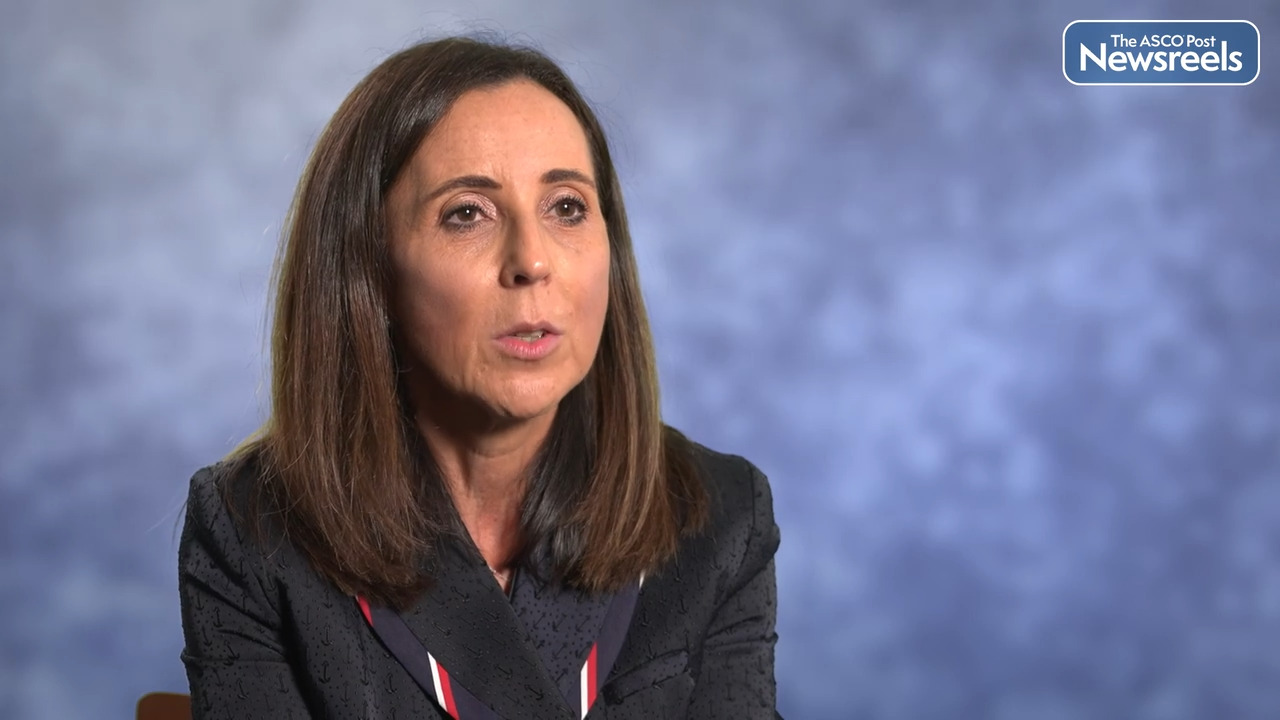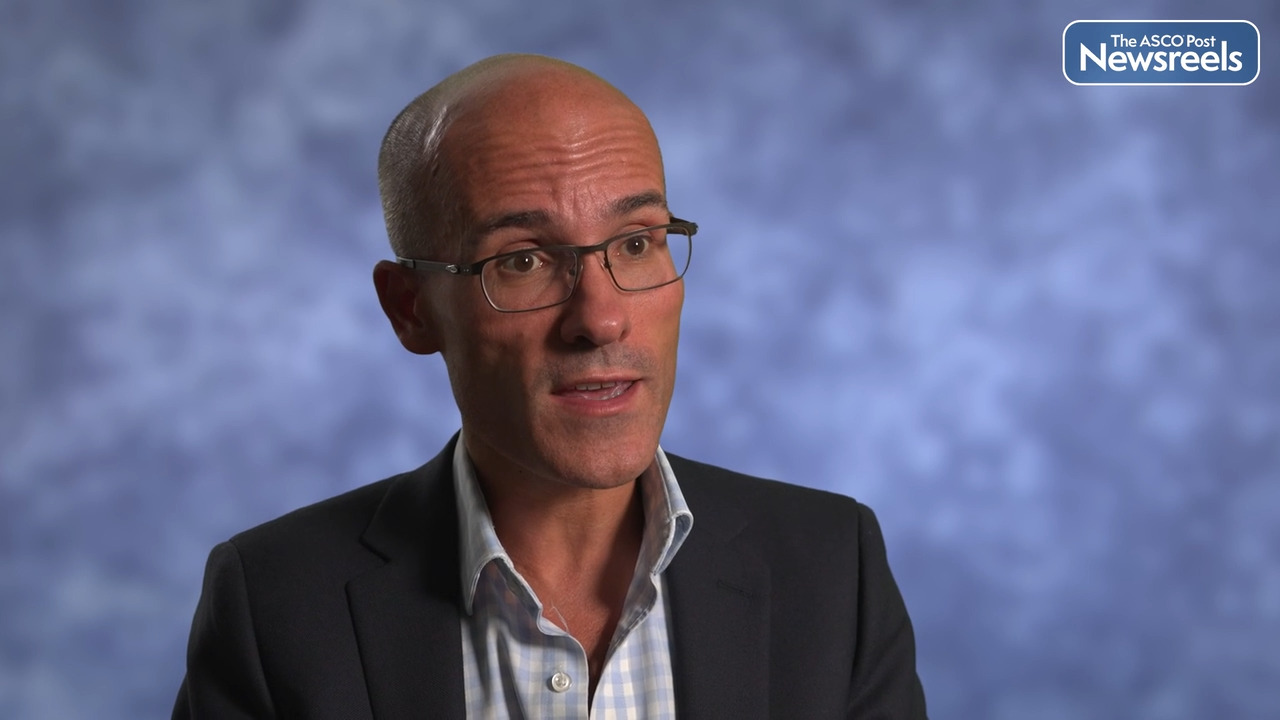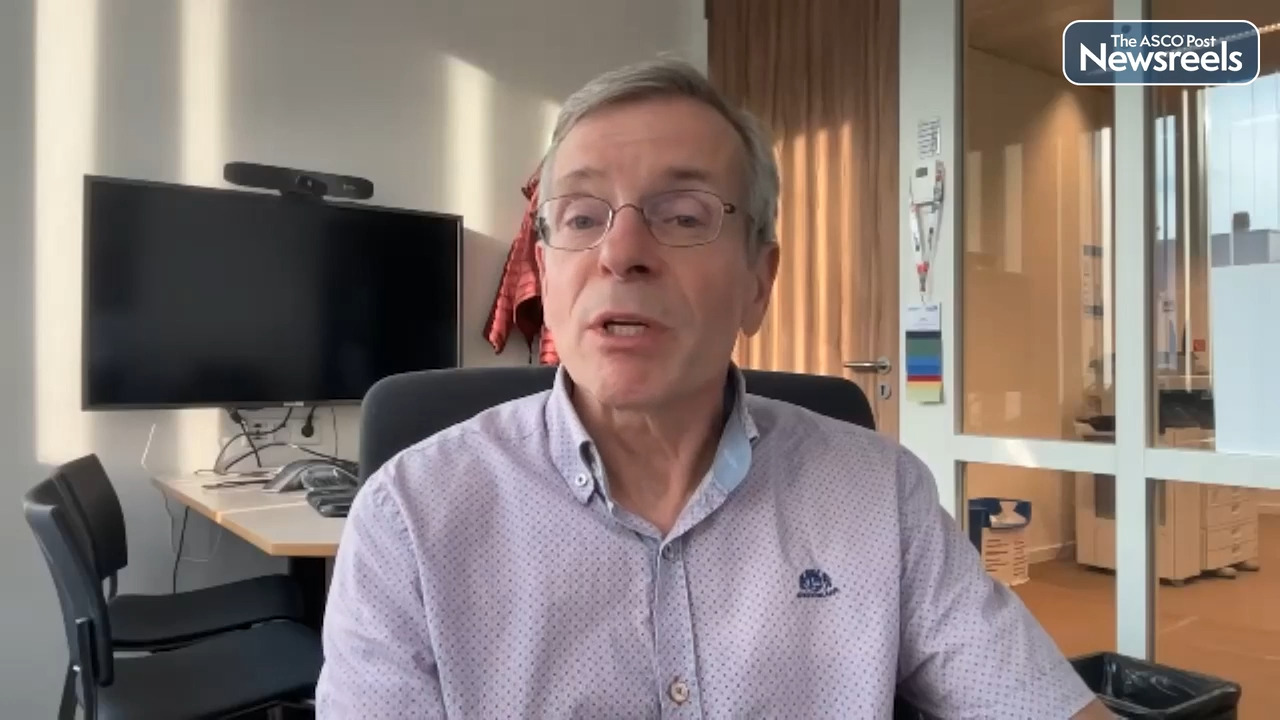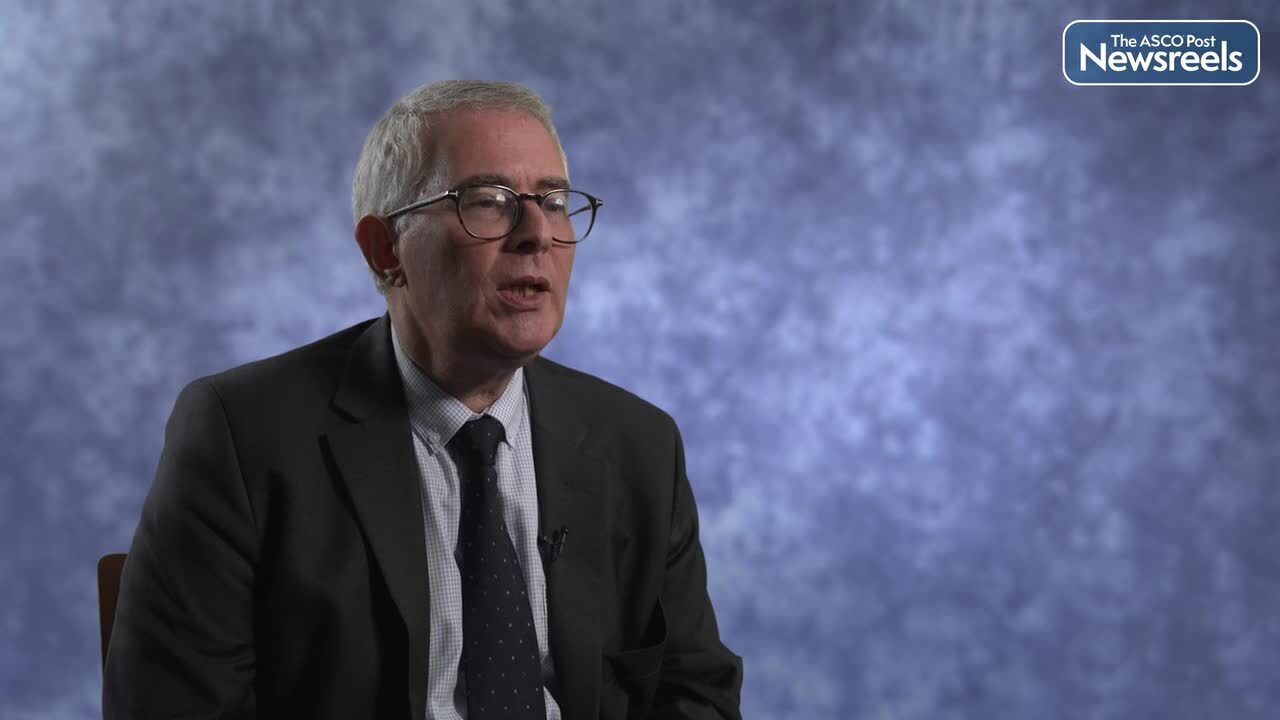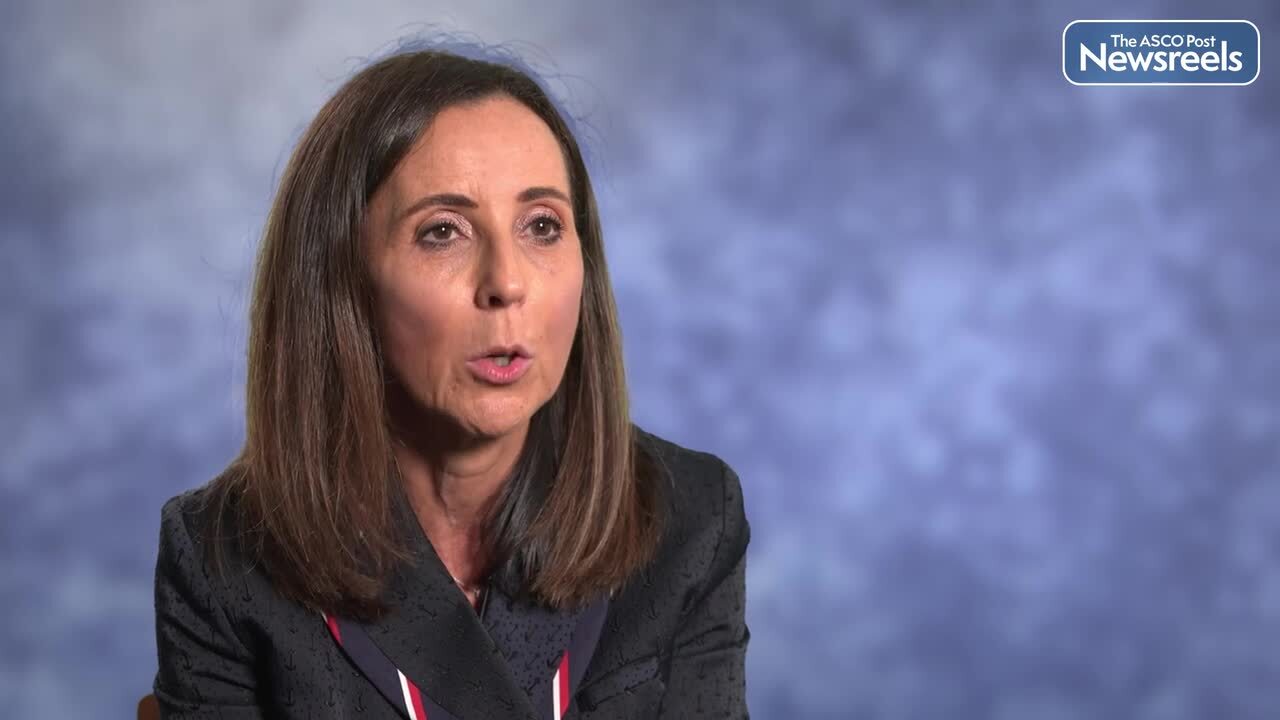Marinde J.G. Bond, PhD Candidate, on Colorectal Liver Metastases: FOLFOX/FOLFIRI, Bevacizumab, and Panitumumab
ESMO Congress 2022
Marinde J.G. Bond, PhD Candidate, of the University Medical Center, Utrecht, discusses phase III findings from the CAIRO5 study of the Dutch Colorectal Cancer Group, the first such trial in defined subgroups of patients with initially unresectable colorectal cancer liver metastases and left-sided and RAS/BRAF V600E wild-type tumor. The study compared FOLFOX/FOLFIRI plus either bevacizumab or panitumumab (Abstract LBA21).
Transcript
Disclaimer: This video transcript has not been proofread or edited and may contain errors.
CAIRO5 is the first randomized controlled phase III trial in which the currently most effective systemic regimens were compared in defined subgroups of patients with initially unresectable colorectal cancer liver metastasis, as defined by a liver expert panel. Patients with RAS/BRAF-mutated and/or a right-sided primary tumor were randomized between dub chemotherapy and triplet chemotherapy, both plus bevacizumab. The results of this group were presented at ESCO annual meeting last June and patients with RAS/BRAF wild-type, and left-sided primary tumors were randomized between doublet chemotherapy and either bevacizumab or panitumumab. I presented the results of this group, which evaluated 230 patients.
A novel aspect of this study is the Liver Expert Panel, which evaluates unresectability at baseline, according to redefined criteria, and resectability every 2 months during follow up, the Liver Expert Panel consisted of 15 liver surgeons and three abdominal radiologists. The panel procedure was as follows. The CT scans were uploaded and reviewed by one abdominal radiologist and then by three liver surgeons. If no consensus among these three liver surgeons existed, then two additional surgeons were invited and the final decision was made by majority votes. Consensus on unresectability at baseline was present in 67% and during follow up in 42%.
Based on these results and the results of in-depth analysis, we can conclude that the use of a liver expert panel is feasible and allows the selection of an increased number of patients who are eligible for local treatments with curative intent. The primary endpoint was progression-free survival and the median progression-free survival in the bevacizumab of arm, 10.6 months, and in the panitumumab arm, 10.3 months. This was not significantly different, with a hazard ratio of 1.12 and the p-value of 0.44. Panitumumab was associated with more grade 3 or higher toxicity, which mainly consisted of skin toxicity and diarrhea. Panitumumab significantly increased response rate and depth of response, which, however, did not translate into an increased local treatment rate of liver metastasis.
In conclusion, the median progression free survival was not different between the use of either bevacizumab or panitumumab to FOLFOX or FOLFIRI. The local treatment rate was not significantly different either despite the higher response rate and higher depth of response. Considering the results of previous anti-EGFR trials, the data and overall survival should be weighted before we can draw a final conclusion about the use of anti-EEGR therapy in patients with initially unresectable colorectal cancer liver metastasis and their-left sided and RAS/BRAF wild-type tumor.
Related Videos
The ASCO Post Staff
Ana Oaknin, MD, PhD, of Barcelona’s Vall d’Hebron University Hospital, discusses an analysis of long-term survival from the EMPOWER-Cervical 1/GOG-3016/ENGOT-cx9 trial. Cemiplimab-rwlc is the first immunotherapy to demonstrate an overall survival benefit as a second-line monotherapy for patients with recurrent or metastatic cervical cancer previously treated with platinum-based chemotherapy but not immunotherapy. The benefit was sustained in this population (Abstract 519MO).
The ASCO Post Staff
Charles Swanton, PhD, of The Francis Crick Institute, discusses a newly discovered mechanism of action for air pollution–induced non–small cell lung cancer in which particles linked to climate change appear to promote cancerous changes. The finding might pave the way for new potential approaches to lung cancer prevention and treatment (Abstract LBA1).
The ASCO Post Staff
John B.A.G. Haanen, MD, PhD, of The Netherlands Cancer Institute, discusses recent phase III findings, which show that tumor-infiltrating lymphocytes (TILs) improve progression-free survival compared with ipilimumab by 50% in patients with advanced melanoma after not responding to anti–PD-1 treatment. Around 50% of TIL-treated patients had a response, and 20% had a complete response (Abstract LBA3).
The ASCO Post Staff
Gérard Zalcman, MD, PhD, of France’s Bichat-Claude Bernard Hospital, Assistance Publique–Hôpitaux de Paris, discusses phase III results from the IFCT-1701 trial, which explored the questions of whether to administer nivolumab plus ipilimumab for 6 months or whether to prolong the treatment in patients with advanced non–small cell lung cancer (Abstract 972O).
The ASCO Post Staff
Ana Oaknin, MD, PhD, of Barcelona’s Vall d’Hebron University Hospital, discusses findings from the CheckMate 358 trial, which showed that chemotherapy-free immunotherapy with nivolumab alone or in combination with ipilimumab may provide durable tumor regression with manageable toxicity in patients with recurrent or metastatic cervical cancer, regardless of tumor PD-L1 expression (Abstract 520MO).
